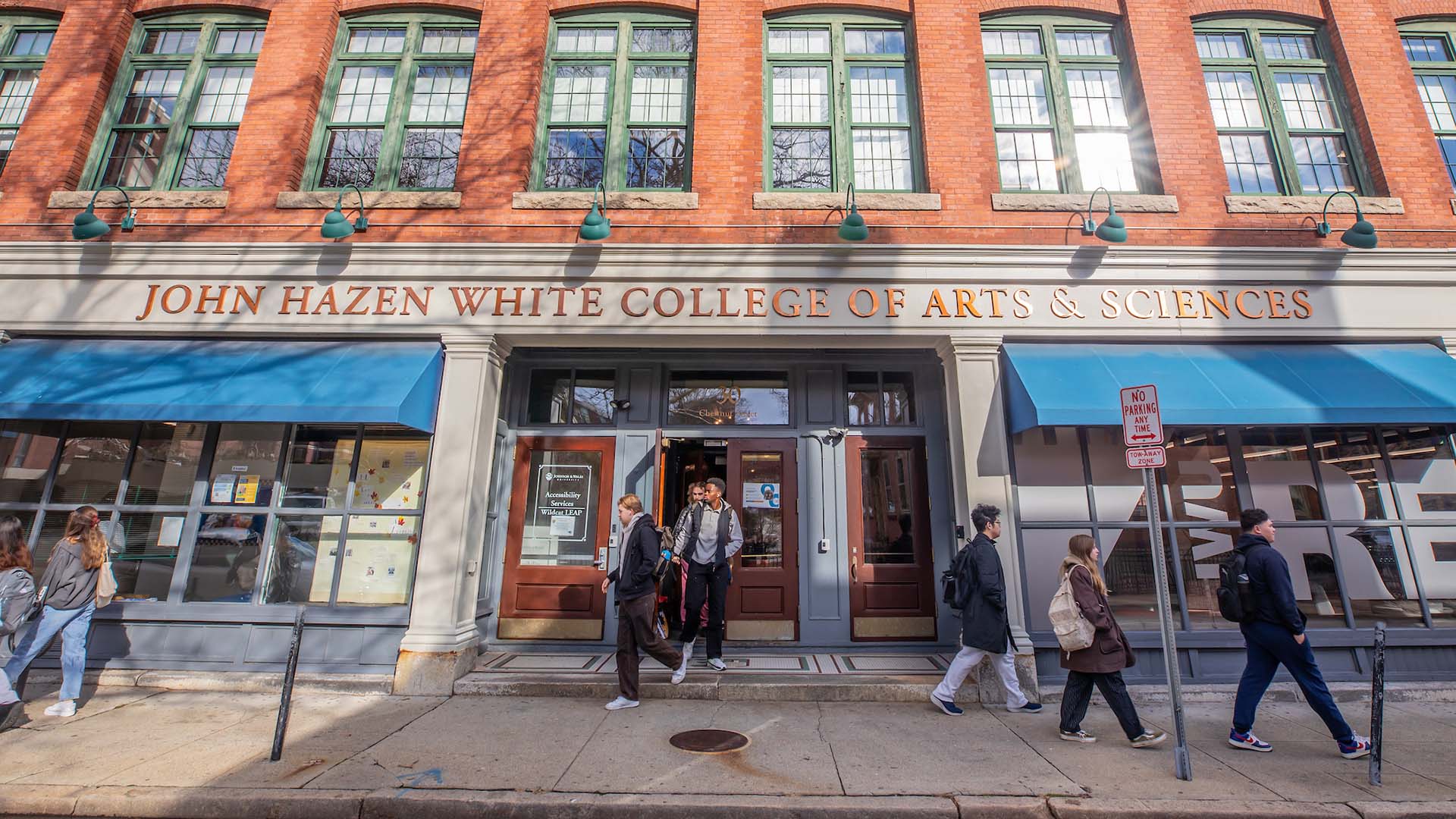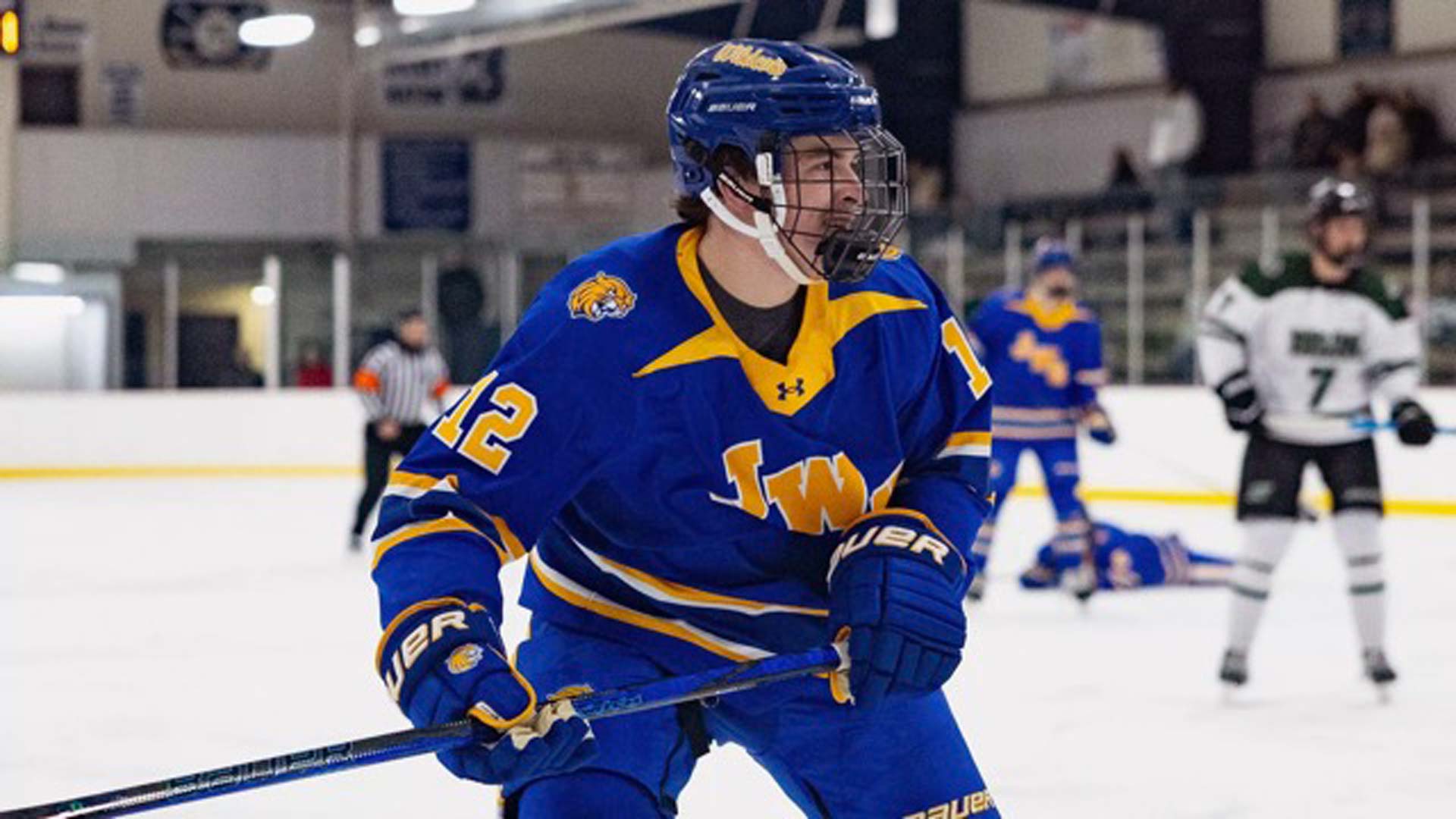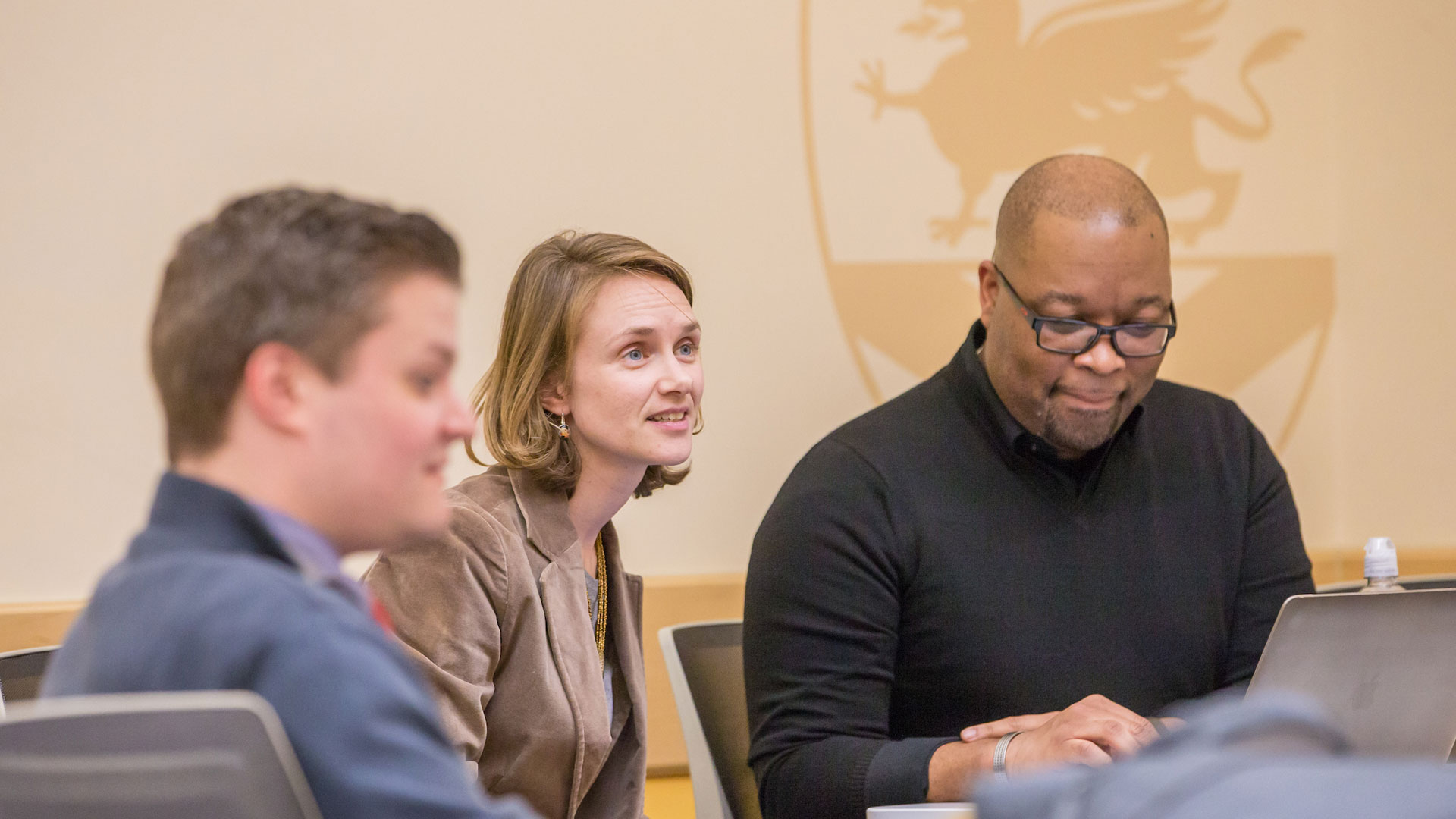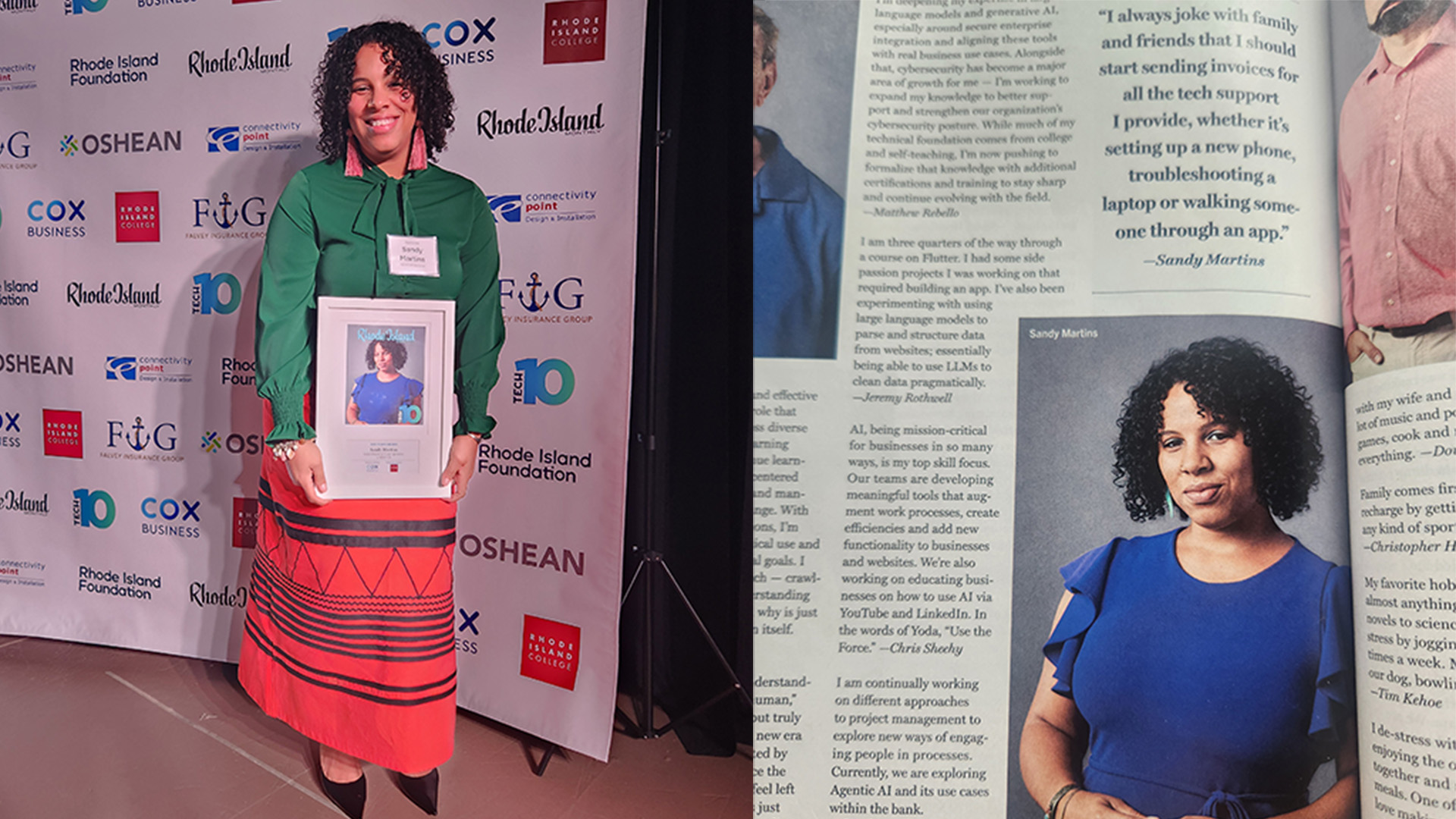Making an Impact: Changing the Economy, One Wildcat at a Time
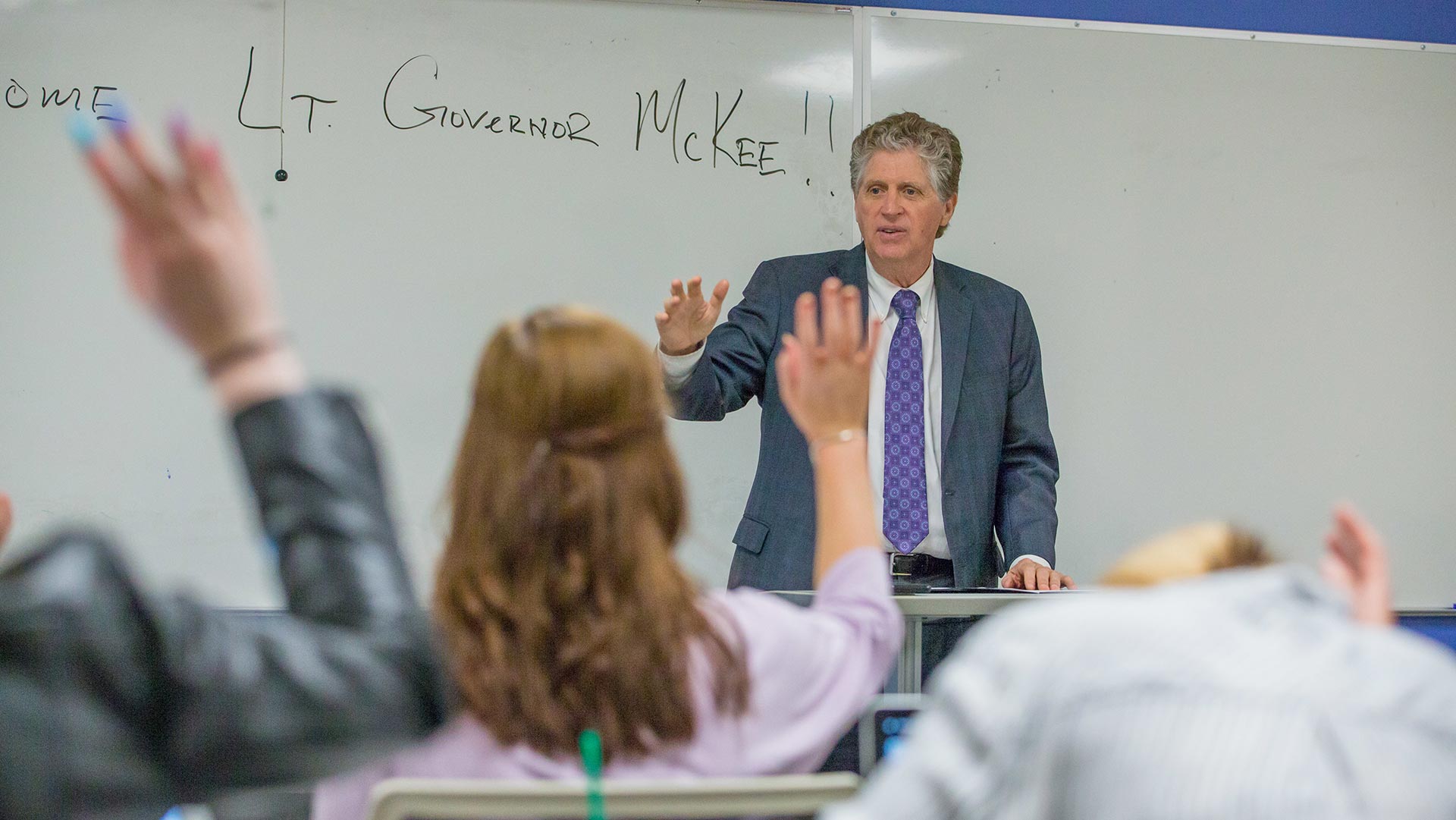
How much of an impact can JWU students have on the local economy? Can they really affect change when it comes to policy-making? According to Lieutenant Governor Dan McKee, JWU students can and do hold the power — and all it takes to improve the economy is a little grassroots involvement.
McKee visited JWU to speak to economics professor Larry LaFauci’s macroeconomics class. As Lt. Governor, McKee is focused on creating more economic opportunity for all Rhode Island families and building strong communities. He spoke to the class, composed of a mixture of sophomores to seniors, about the importance of building up Rhode Island’s economic environment.
McKee likens strong communities to a three-legged stool, with each leg critical to a thriving town. The first leg is a strong public school system. The second is an economy that can support the families who send their kids to those schools. The third is a safe and strong community. “If you hit that trifecta, you win,” he says. Building economic strength is the key, and he believes today’s students can help.
Not all students in the class are Rhode Islanders — some hail from the broader Northeast area and a few reside in states as far away as California. McKee explains that part of his job is to encourage people — particularly young, enthusiastic people — to put down roots in Rhode Island. “If you’re at a university in Rhode Island, even if you don't live in the state — the economy here is going to make a difference in terms of your experience,” he says.
"It was a great opportunity to discuss ideas with a man of very high power who students usually do not get the opportunity to speak with."
In a candid discussion, McKee engaged students on topics important to them, including creating opportunities for small business and keeping companies in Rhode Island. “I don't know how creative we're being, but when you're dealing with a very creative company … you need some very creative people to sit down and talk to them and to try to paint this picture.” The skills learned in a macroeconomics class are an important base, he says, but they need to be bolstered by others — particularly communication and creative problem-solving.
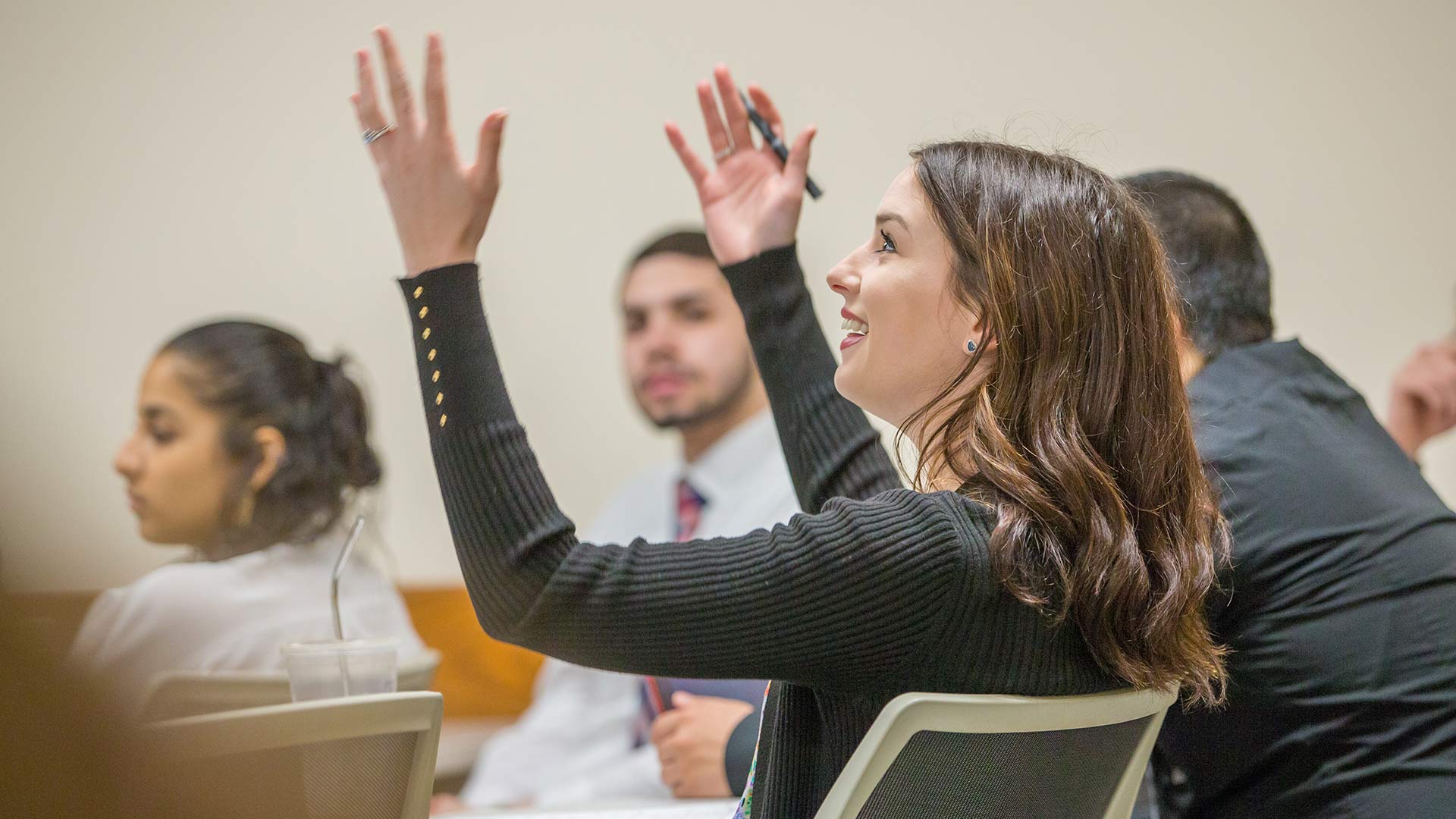
“Having the Lieutenant Governor talk to our class was an amazing opportunity to see how what we learned during the year works in the real world,” Catherine Briones ’20 (Sports, Entertainment, and Event Planning Management) says. “It was very fascinating to see how macroeconomics works in Rhode Island. It was also a great opportunity to discuss ideas with a man of very high power, who students or people of my age usually do not get the opportunity to speak with.”
McKee recently returned from a trip to Asia, where he engaged with business leaders to encourage them to invest in Rhode Island. Relationship-building and keeping an open mind to explore other cultures is vitally important in any career path, be it political, economic, or the private sector – something LaFauci keeps in mind when teaching economics. “Having presenters like the Lt. Governor provides students with a more holistic understanding of economics,” LaFauci says. “Knowledge retention is also enhanced when students can relate and apply the information that is covered in class to the real world.”
"Having presenters like the Lt. Governor provides students with a more holistic understanding of economics."
Students asked questions about entrepreneurship in particular, and how McKee’s office supports initiatives for startups in Rhode Island. As it happens, the Lt. Governor’s office has created a yearly Entrepreneurship Challenge for Rhode Island high school students. Millennial RI, the state’s fastest-growing millennial professional network, is partnering with his office to help judge. The challenge is a business-based competition for scholarships to in-state post-secondary institutions. High schoolers create a detailed business plan outlining their vision for a business they would like to open in Rhode Island. After all written business plans are scored, the top five scoring students advance to a final pitch competition. During finals, students present a business pitch to the panel of judges. The top three scorers receive scholarships.
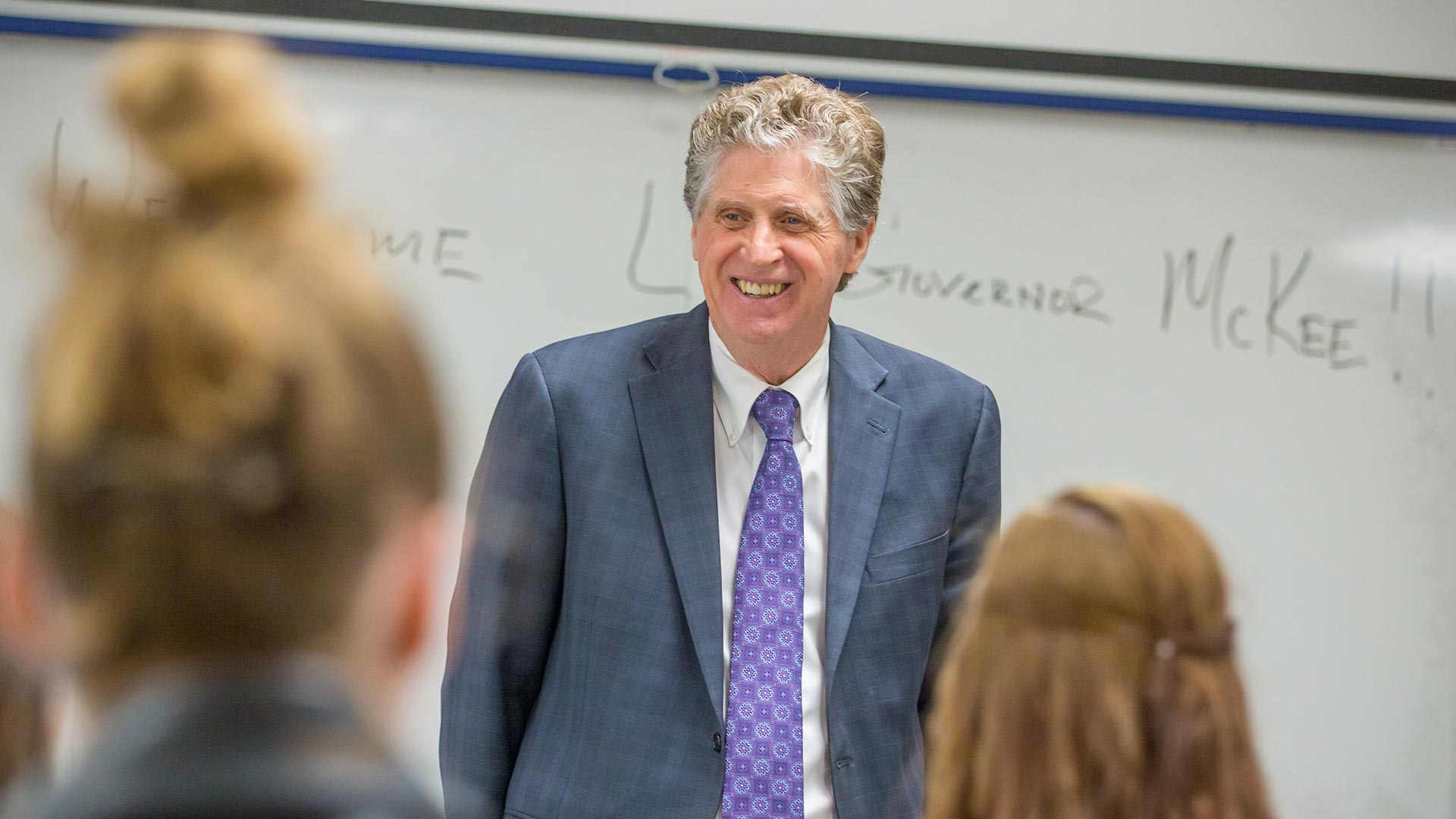
McKee, visibly excited about the contest and partnership with Millennial RI, encouraged JWU students to become involved. “We’d love to have college students do some of the evaluation next year,” he says.
Grassroots involvement is an important topic to McKee, and his enthusiasm filtered through to the class. He urges students to stop by his office or to Google ways to become involved not only with local politics, but also in local business and networking. For example, an issue he is faced with is tackling the adjusted gross income disparity in Blackstone Valley – a job he doesn’t do alone. He welcomes input from all constituents from all walks of life. “I'm trying to figure out how to increase per capita income in the communities that are losing it,” he says. “If we can solve that problem, we just really strengthen the state of Rhode Island considerably. I'd love to hear your thoughts on how that could happen today or in the future.”
McKee closed the discussion with a continued note of encouragement for students to make their voices heard. “The powerful tool that you have as students is the ability to write op-eds,” he says. “That's a very powerful tool, regardless of the state you're from. You've got a thought that matters to you. And then all of a sudden you inject yourself into the story.”

